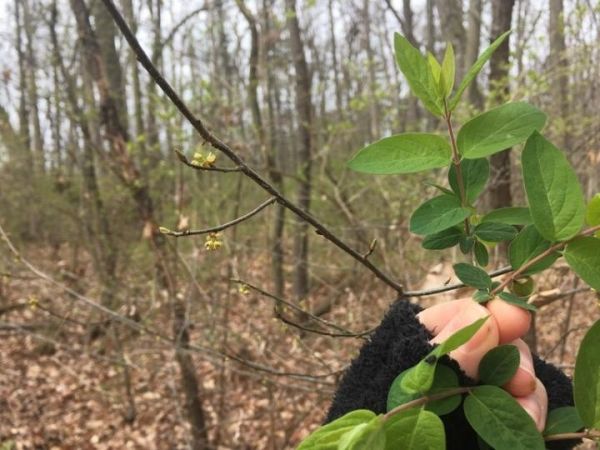The rapid pace that invasive shrubs infiltrate forests in the northeastern United States makes scientists suspect they have a consistent advantage over native shrubs, and the first region-wide study of leaf timing, conducted by Penn State researchers, supports those suspicions.
With the help of citizen scientists spread over more than 150 sites in more than 20 states, researchers collected thousands of observations over four years of exactly when both invasive and native shrubs leaf out in the spring and lose their leaves in the fall. The study area was expansive, stretching from southern Maine to central Minnesota south to southern Missouri, to North Carolina.
“Eastern North America is the recipient of more invasive shrub species into natural areas than any other geographic region of the world,” said lead researcher Erynn Maynard-Bean, postdoctoral researcher in the College of Agricultural Sciences, working under the guidance of Margot Kaye, associate professor of forest ecology. “Invasive shrubs are growing in both abundance and in the number of species established at the expense of many types of native species.”
The researchers reported in Biological Invasions that invasive shrubs can maintain leaves 77 days longer than native shrubs within a growing season at the southern end of the area studied. The difference decreases to about 30 days at the northern end of the study area. At the southern end of the study area, the time when invasive shrubs have leaves and native shrubs do not is equally distributed between spring and fall; in the northern reaches of the study area, two-thirds of the difference between native and invasive growing seasons occur in fall.
Read more at Pennsylvania State University
Image: In early spring, northern spicebush (Lindera benzoin) is a native shrub that is just breaking buds on the left, while an invasive shrub, Morrow's honeysuckle (Lonicera morrowii), has well-developed leaves on the right. (Credit: Erynn Maynard-Bean/Penn State)


